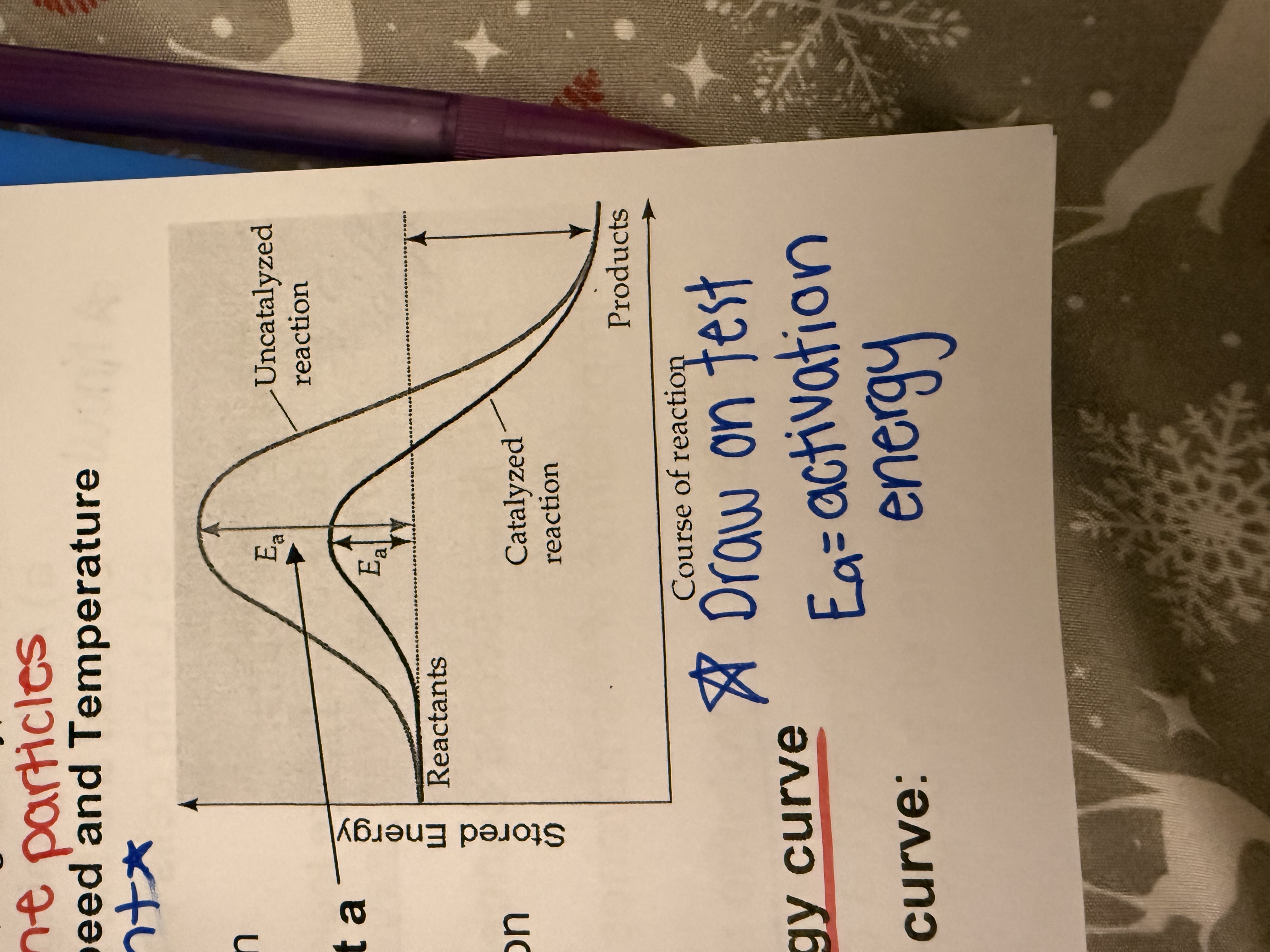Honors biology 10-29-25
1/16
There's no tags or description
Looks like no tags are added yet.
Name | Mastery | Learn | Test | Matching | Spaced |
|---|
No study sessions yet.
17 Terms
what is the cell theory?
One all living things are made up of cells. Two cells are the basic units of life. Three living cells come from other cells.
what is the pH and temperatures affect on reaction rate enzyme function
The farther away the pH from the optimal pH, the weaker the enzyme activity is. The rate of reaction is rising towards the optimal temperature, but immediately decrease decreases when slightly passed the optimal temperature
what is the enzyme and substrate concentration effect on reaction rate?
The higher, the enzyme concentration, the higher the rate of reaction. Once the point of saturation is me that increasing concentration does not affect the reaction rate therefore it says the same.
what are the two people in the timeline for cells?
Robert Hook looked at a cork to see that it was made of tiny things known as cells. Anton Van leeuwenhoek, was the first to see living cells.
what is the surface area to volume ratio?
Surface area of a cube equals edge times edge times six squared. Volume of a cube is edge times edge times edge to the third power.
prokaryote
High surface area to volume ratio no organelles
eukaryote
Low surface area to volume ratio with organelles
carbohydrates sugars
Basic unit= Monosaccharide=C6H12O6 which is polar
structural use=plants only cellulose
Energy storage in plants= starch in animals= glucose
lipids fats
Basic unit= fatty acid =short polar head and long non-polar tail(bumpy/uneven)
structural use= cell membranes
Energy storage= fats (animals months or years)
nucleic acids
basic unit= nucleotide= sugar+base+phosphate
structural use= DNA
Energy Storage= ATP
information storage=DNA RNA (blue prints for building proteins)
proteins
Basic unit= amino acid= constant backbone+variable side chain
Structure= string amino acids to make up every protein
Temp= how fast you are shaking the particles
polymer
Many repeated units
monomer
One unit that’s not small
what is the picture of the chemical reactions?

activation energy
The energy needed to start a chemical reaction Ea
catalyst
Something that assist a chemical reaction by lowering the activation energy, but is not used up
enzyme
A catalyst made of protein